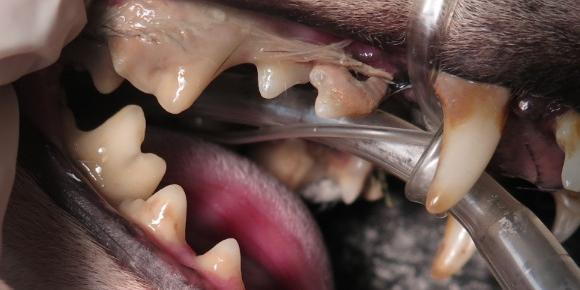
Dental health isn’t always seen as a priority by pet owners and it is something that can have severe consequences if ignored. Over 70% of cats and dogs have some form of dental disease or periodontal disease by the time they are three years old. Periodontal disease can be painful and lead to tooth loss later in life. Chronic dental disease continuously releases bacteria into your dog or cat’s blood stream which can lead to damage of the heart, kidney, and liver later in life.
So, how do you know if your pet may have dental or periodontal disease? Here are some signs to watch out for:
- Bad breath
- Gums are red, swollen, and/or inflamed
- Gums bleed during brushing or when they are touched
- Mouth is painful when chewing, or the pet favors chewing on one side of the mouth
- Refuses dry food and will only eat soft food
- Heavy tartar is visible, there is a discolored build-up on the pet’s teeth and/or along the gumline
- Visible infection and/or discharge from the gums
- Swelling on one side of the face and/or excessive eye discharge
- The pet paws or scratches at their face
What do you do if you suspect your pet may being having problems with their mouth, teeth, or gums? First things first, give us a call to schedule a dental assessment with Dr. Miller. If the disease is severe enough we may want to start your pet on antibiotics before a dental cleaning. All of our dental cleanings are performed under anesthesia. That means we keep your dog or cat for the day, and they come home the same evening. After the initial assessment we will schedule your pet for a drop off to take care of any dental issues they may have. And please remember: at home care, like brushing, is a great way to help slow the progression of dental issues like tartar build up or periodontal disease; however, most pets still require a professional cleaning under anesthesia every six to twelve months to maintain proper dental health (just like people!).
Learn more about periodontal disease from the American Veterinary Dental College and the Veterinary Oral Health Council:
Periodontal Disease- American Veterinary Dental College